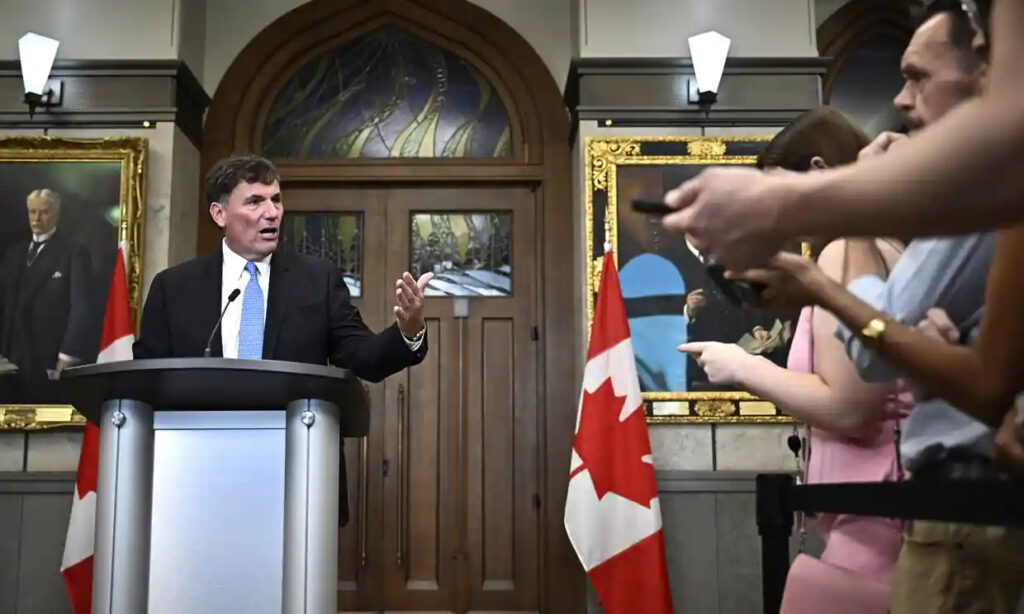Marie-Josée Hogue to investigate claims of election meddling by China and other countries, in process marred by months of feuding

Dominic LeBlanc announces the appointment of Marie-Josée Hogue in Ottawa on Thursday. Photograph: Canadian Press/Shutterstock
(Written by Leyland Cecco – Originally printed here in The Guardian, reprinted with permission)
Canada has appointed a judge to lead a public inquiry into allegations of political meddling by China and other nations, in an attempt to restore confidence in a process marred by months of political feuding and allegations of cronyism.
The governing Liberal party announced on Thursday that Marie-Josée Hogue, a Quebec appeals court judge, will lead a public inquiry into allegations of foreign interference in Canadian elections. She has been tasked with providing a series of recommendations ahead of the next federal vote in 2025.
“Justice Hogue will be tasked with examining and assessing foreign interference by China, Russia and other foreign states and non-state actors,” said Dominic LeBlanc, who serves as the public safety and democratic institutions ministers, calling the issue of foreign inference a “global challenge” for democracies. He said Hogue would have “full access” to key documents needed for the inquiry.
Over the past year, Canada has been rocked by leaked intelligence reports of Chinese election “meddling” with the country, including concerns over of illegal “police stations” operating inside Canada.
In May, Canada expelled a Chinese diplomat after an intelligence report accused him of trying to intimidate a Canadian lawmaker critical of Beijing’s treatment of its Uyghur Muslim minority.
But the country’s efforts to investigate the scope of foreign interference has stalled in recent months after the official tapped to lead efforts resigned in late spring.
David Johnston, a former governor general, withdrew from the job, citing a “highly partisan atmosphere” which he said prevented him from fulfilling his role as “special rapporteur”. In late May, a majority of lawmakers in the House of Commons passed a motion calling for Johnston to “step aside” as rapporteur, citing “serious questions” over possible conflicts of interest, given Johnston’s relationship with the Trudeau family.
Johnston initially drew widespread frustration from pundits and political leaders after he suggested a public inquiry would not be useful because much of the relevant material needed to conduct the inquiry would remain secret. At the time, Johnston said any public inquiry would be an “easy choice, it would not be the correct one”.
Hogue will now oversee that inquiry, and is expected to submit her initial report by the end of February next year, examining if interference efforts from China as well other countries had any effect on the 2019 and 2021 federal elections. Members of an independent panel, set up to monitor possible threats to elections, recently told lawmakers that the meddling attempts did not threaten Canada’s ability to have a free and fair election in 2021.
LeBlanc told reporters it was up to Hogue to determine how much of the inquiry would be made public.
She is required to deliver a second report by the end of December 2024, providing recommendations to shield Canada’s democratic institutions from foreign interference.
Both reports are due ahead of the next federal election, scheduled for autumn 2025. But the governing Liberals are in power with the support of the New Democratic party and an election would be triggered if the NDP pulled their support.








